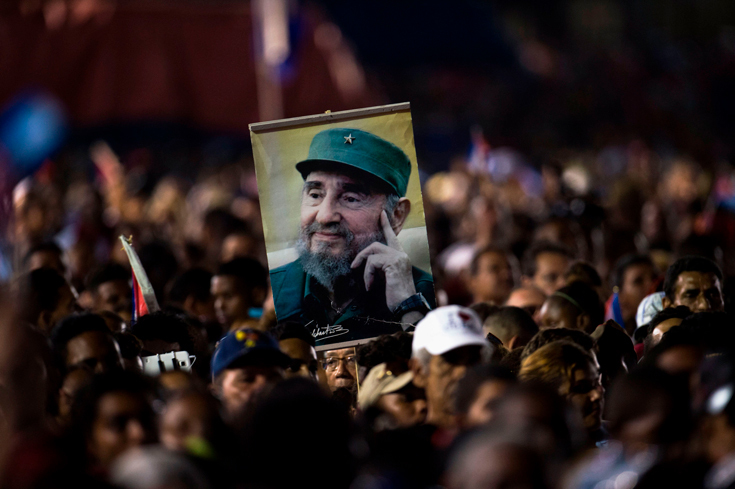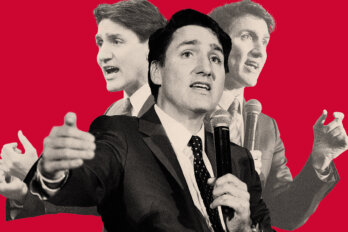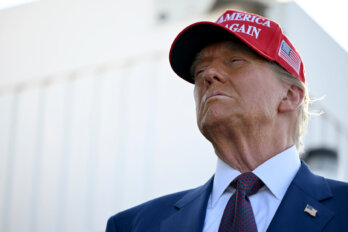The news was buried in the next-to-last paragraph of a routine 2016 article outlining Arte y Literatura Editions’ new releases, to be launched in the course of Havana’s twenty-fifth International Book Fair.
We might regard as wise the decision to publish the iconic novel 1984 by the English writer George Orwell, deemed controversial and thought-provoking, given the fact that it portrays life in a society where information is controlled, and where mass surveillance and social and political repression are the order of the day.
The news was certainly surprising. Somewhere in the opaque hierarchy of a dictatorship where, indeed, news was managed while mass surveillance and political and social repression were standard operating procedure, someone had hatched the curious idea of authorizing a new translation of the most notorious antitotalitarian novel of the twentieth century. And Radio Enciclopedia, a media organization controlled by the regime, was characterizing this decision as “wise.”
When I came across this article online, I was in Miami. I was paying a visit to the capital city of exiled Cubans in order to meet some members of the diaspora in anticipation of my first trip to the island, which would coincide with the book fair, and so with the unveiling of 1984. For a rare moment in my career, I found myself with a small international scoop. Only the rarely consulted website for Radio Enciclopedia had relayed this news to the outside world, and no media outlet outside of Cuba had yet got wind of it. But what could I do with this privileged information? I was a freelance francophone journalist with no regular outlet where I could publish this sort of item, which in any case was too specialized for the publications to which I contributed. What is more, I was preparing to spend a month in Cuba, ostensibly as a tourist. It was no time to attract the authorities’ attention and to risk having myself refused entry into the country when I disembarked from the plane.
The day of my discovery, I had an appointment with a Cuban American journalist at a Starbucks in Coral Gables, a ritzy municipality in Miami-Dade County. I passed on the information, which surprised her as much as it had me, and after the usual verifications, she published an article on the subject on Café Fuerte, a Cuban-diaspora news site.
The news was quickly picked up by almost all the media outlets keeping an eye on Cuba. Each had its own interpretation. Should it be perceived as a sign of more openness on the part of the regime thirteen months after the reestablishment of diplomatic relations between Cuba and the United States? Or, on the contrary, was it just another ruse on the part of the Castro brothers to make people feel there had been an opening while, behind the scenes, they continued to discourage dissidence? Unless it was just a bad joke and, at the last minute, the book’s appearance would be delayed indefinitely? The commentators’ theories, coloured by a virulent hatred of the regime or, conversely, by an optimism bordering on naïveté, were of course pure speculation. None of them were confidants of the gods, and the gods were keeping their counsel.
What was going on across the Florida Strait for 1984 to be suddenly published in 2016? What impact would the release of this novel have on a society where, as in the Oceania imagined by Orwell, although with less ferocity, a single party maintained strict control over the lives of its citizens and the news to which they had access?
In those early days of 2016, it was said that Cuba was “in transition.” It had been ten years since Raúl Castro had succeeded his brother Fidel. In that time, he had embarked on a redefinition of the “economic and social model for socialist development,” a process that, in reality, consisted of the dismantling of that model and a gradual drift toward a market economy.
Since December 17, 2014, the date when the warming of relations between Cuba and the United States was proclaimed, hardly a month had passed without the Obama administration announcing yet another relaxation of its commercial embargo upon the island, put in place by John F. Kennedy in the wake of the 1962 Cuban missile crisis. Barack Obama did not hide his desire to lift it definitively before the end of his mandate, but that was impossible without the consent of the two houses of Congress, controlled by the Republicans, who were opposed to the measure.
Despite that, each new breach in the bloqueo, as the Cubans called the embargo, encouraged businessmen and women from the United States and around the world to converge on the island. They all wanted to position themselves in anticipation of the day when the market would be open for good. Tourists also flocked to Cuba more frequently than ever. For a first or last time, they wanted to photograph Havana in its period costume, before it was totally overtaken by the twenty-first century: the American cars out of the 1950s, the vintage facades of the state stores, the faded revolutionary slogans on the walls, Hemingway’s Havana, Fidel’s Cuba, with no McDonald’s or Starbucks, the ruins of the communist utopia. They came from everywhere to see Cuba “before it all changed.”
Simultaneously, this race against time was inciting a horde of Cubans to swim against the tide of American tourists and business. By the thousands, they fled the island, hoping to set foot on American soil “before things changed”—in other words, before the repeal of the Cuban Adjustment Act, a law that guaranteed them automatic asylum and a green card a year after their arrival. In 2015, 40,139 individuals were successful, an increase of 78 percent over the previous year. Many had begun their journey by flying to Ecuador, one of the only countries in the Americas that, until December 2015, did not require visas from Cubans. From there, they spent many months making their way up the entire continent, with no legal status and under difficult conditions, to the Mexican–American border. Others, on board clandestine vessels, crossed the 150 kilometres of ocean waters that separated their island from the Florida coast. Thousands failed to reach the promised land, intercepted by the American coast guard or forced to turn back before sinking. Many also remained stuck in Costa Rica after the sudden tightening of security at the Nicaraguan border ordered by president Daniel Ortega, a long-time ally of the Cuban Revolution. An indeterminate number of risk-takers met their death in the shark-infested waters of the Florida Strait or on the violent roadways of Central America.
Cuba, before it changes. Cuba, before what comes after. It was this period of flux between two eras that the publication of 1984 appeared to capture—a period caught between a past at the end of its tether but stubbornly refusing to yield and a future whose profile was still undetermined. Of course, the future still had the right to refute any speculations as to its nature, as it had so often done in the past.
In 1984, Winston Smith is a bureaucrat in the Ministry of Truth, a government department that, in truth, is responsible for lies. Winston’s work consists of tirelessly rewriting yesterday’s newspapers in order to expurgate individuals and facts that no longer jibe with today’s official version. If, for example, the production goals for the third trimester of 1983 are not achieved by the end of that period, they have to be retroactively matched with the results actually obtained in order for the achievement to have taken place. If, in April, the weekly ration of chocolate is suddenly reduced from thirty to twenty grams, the firm promise made by the Party in February not to do so must be replaced in the same February issue of the Times by a warning that rations will very shortly be decreased. If Party officials are disgraced, they must vanish from all the archives in order to never have existed. “He who controls the past controls the future. He who controls the present controls the past,” goes the Party’s slogan. In doing away with any dissonance between the past and the present, the Party can declare itself infallible. It has always been right, is always right, and will always be right.
Despite years of conditioning, Winston is still unable to believe in the infallibility of the Party and its leader, Big Brother. Worse, he realizes that, far from loving Big Brother as a Party member ought to, he hates him. Instinctively, he knows that the society in which he lives is not the ideal entity it pretends to be. However, unable to compare it with any other, he can find no proof. Oceania’s citizens have no contact with foreigners. Their archived past is but a web of lies. Winston knows this better than anyone, finding himself on the front line of falsification. To sustain the impression that life was better before the revolution, he has only his dim childhood memories.
One day, Winston starts writing a personal diary. Before even dipping his pen in ink, he knows that this act will lead to his undoing. Sooner or later, the Party will expose him and punish him. Sooner or later, Winston will fall back in line or, if not, will be fated never to have existed. Despite this certainty, he cannot stop himself from writing. He wants, at any price, “to transfer to paper the interminable restless monologue that had been running inside his head, literally for years.” In documenting his life in a totalitarian society, Winston is offering his unlikely future readers an alternate account of the past.
During his first writing session, when he has barely set down the date he thinks to be accurate, without being certain—April 4, 1984—he pauses. For whom, it suddenly occurred to him to wonder, was he writing this diary? For the future, for the unborn. . . . For the first time the magnitude of what he had undertaken came home to him. How could you communicate with the future? It was of its nature impossible. Either the future would resemble the present, in which case it would not listen to him: or it would be different from it, and his predicament would be meaningless.
In the dystopic world imagined by Orwell, the future bears out Winston’s defeatism: he is arrested and reeducated by the Party, he betrays the woman he loves, and in the end, he comes to love Big Brother. As for his version of history, it is obliterated, never to be read, never to be seen.
In the real world, the fate of Winston’s narrative was very different. Since the first appearance of 1984, in June 1949, it has been read by millions of people around the world. The account of his life in Oceania has been used both to denounce existing totalitarian regimes—be they fascist, communist, or other—and to alert democracies to the danger of totalitarian drift.
Winston has been heard: his “predicament” is now iconic. Prisoner of a totalitarian world, the main character of 1984 writes with no hope that his words will change a thing in the course of events, neither in the present nor in the future. Yet he cannot help writing. Winston is deeply pessimistic, but he wants to at least have tried to resist, even if it’s in vain and at the risk of his life.
As for Orwell, he was writing his novel in a democratic country, three years after the Second World War. Unlike his character, he knew that his words might be read, even if he could not conceive of the extraordinary impact they would have. He set his story in the future. Basing it on the worst things he had seen in the course of his life, he imagined the bleakest future possible, doubtless in hopes of inciting his readers to stand in the way of such a dystopia.
Eric Arthur Blair, alias George Orwell, died of tuberculosis on January 21, 1950, at the age of forty-six, seven months after the release of 1984. He never saw the future he had tried to foretell.
He enters the café, spots me, comes over, takes his earphones out of his ears, letting them hang down between two shirt buttons, and shakes my hand without looking me in the eye, without smiling, lifting his chin slightly as his only greeting, as if we were old friends who had just seen each other the day before. He sits down, declares that he doesn’t like coffee and won’t be drinking anything, then begins to talk.
In English, his accent has certain British intonations that don’t entirely mask those of his Spanish mother tongue. His vocabulary is rich, that of a wide-ranging reader. To support his arguments, he cites from memory a host of authors. He makes occasional errors in grammar, but I notice them only because they’re different from mine in the same language. He talks and talks, passing from the trivial to the philosophical, from literature to women, from Cuba to Spain. Almost everything he says is interesting. But I have to interrupt him, or he’ll never stop and I’ll never know how he came to be the translator of the second Cuban edition of 1984.
“So how did this all come about?”
It all began in April 2014, Fabricio González Neira tells me, with a call from the director of Arte y Literatura Editions. They were seeking a translator for 1984, and his name had come up. At first, Neira told himself that someone must have had too much to drink the night beforehand and would call the next day to withdraw this curious offer to translate an antitotalitarian literary classic. Still, he accepted. No one called him the following day. In fact, the second call came almost a year later, and its purpose was not to withdraw the project but, on the contrary, to put pressure on him to complete it. Arte y Literatura was preparing its catalogue for the 2016 book fair and wanted, at all costs, to include 1984.
A few months after the second call, Neira finally sent off the translation. It was given a rudimentary edit, a preface by a prominent historian was tacked on, the layout was hastily done, and it was dispatched to the printer.
Translating 1984 inevitably threw Neira back into Orwell’s world. Reading the novel for the first time, in the early 1990s, he had been overwhelmed by its power. It was his friend José Miguel Sánchez Gómez—who would later become one of the most prolific science-fiction writers on the island—who had passed him a copy. Back then, they had made a pact, along with a third collaborator: whoever was able to lay his hands on a book had to lend it to the other two before reading it. The cover of Gómez’s copy of 1984 was hidden behind thick paper. In theory, it was not stated anywhere that the book was banned in Cuba, but everyone knew that any book not explicitly permitted by the regime was implicitly forbidden. Books being rare, it was a common practice to cover them and protect them from wear. You could just as easily, in a park or on a bus, be reading a collection of Fidel’s speeches, a romantic novel, or a work that could be condemned as counterrevolutionary, without arousing any suspicions.
Rereading 1984 before embarking on the translation, Neira was much less impressed by it than he had been during his adolescence. In the intervening time, he had combed through the world’s great literary works and many more obscure books. His eye had sharpened. Like many critics, Neira judged that 1984’s narrative line and its characters were not especially well-developed and that there was nothing in Orwell’s prose to impress a practised reader. On the other hand, he still admired the qualities that had made the book a classic. Orwell was extremely insightful when it came to many aspects of life under a dictatorship. That is why, in translating him, Neira often asked himself whether those who had authorized the project had truly gauged the import of their decision.
Political repression in the Castro brothers’ Cuba had certainly never approached the extremes of Big Brother’s Oceania, but every Cuban reader would certainly see parallels between the two societies. For example, reading the passage where Orwell describes the generational gulf that separates Winston, thirty-nine years old, from his lover, Julia, ten to fifteen years younger and born well after the revolution, Neira felt that, in Julia’s attitude, he could recognize his own generation.
She hated the Party, and said so in the crudest words, but she made no general criticism of it. Except where it touched her own life. . . . Any kind of organized revolt against the Party, which was bound to be a failure, struck her as stupid. The clever thing was to break the rules and stay alive all the same . . .
Neira, like Julia, never embraced the government’s ideals. Unlike the generation that preceded his, he never knew disillusionment. He has no intention of rebelling against the powers that be. He wants only to limit the state’s influence on his life. To direct confrontation, he prefers serene disobedience, breaking only the rules he knows he can transgress without consequences.
Neira believes that this state of apathy, as widespread among the regime’s supporters as among its detractors, explains in part why the authorities thought it possible to permit the publication of 1984. “They’ve understood that literature is not dangerous, that a book won’t change anything.” All the more so given that the Cubans who really wanted to read Orwell’s dystopia did so long ago. Like Neira, they’d been able to lay their hands on one of the clandestine copies in circulation or had more recently accessed its pirated digital version, either online or on a USB drive. The virtualization of information has robbed the regime of its monopoly on the distribution of literature, in the past compromised only by a few books brought in from outside.
Given all that, it was most improbable that the publication of a new version of 1984 would suddenly upset the established order and put the regime’s survival in jeopardy. But why risk publishing it, however small the threat, when one could easily not do so? Why have everyone asking why you’re bringing out this book at this time when all the queries could be avoided? Why this rather than nothing?
Neira has no answer. He doesn’t know who initiated the publication or who authorized it. What he has been led to suspect, between the lines, is that the request came “from a level higher than the publishing house.” But how much further up the hierarchy? As high as the Cuban Book Institute, the Ministry of Culture, or even Raúl Castro? Neira is not the sort to be beguiled by facile scenarios. The Castro option seems very dubious to him. But, beyond that, who knows?
He does, however, speculate that the authorities’ motivation was basically a pragmatic one. For a number of years, the Cuban Book Institute, which oversees most of the country’s publishing houses, has attributed a “business” status to some of them. This means that they continue to receive grants from the state but that they must pay for certain operational expenses out of the revenue from their sales. Arte y Literatura is one of the companies that is now a business. Its print run for 1984 was 7,000 copies, which is huge for Cuba. “They knew the book was going to sell,” Neira concludes.
To summarize: according to this theory, the wide distribution, in a communist single-party regime, of one of the antitotalitarian literary classics, was authorized in order to contribute to the financial well-being of one of the system’s institutions. If that were true, the irony would be enormous. But, if one thinks about it, however cynical it seems, the theory holds water. If the regime felt that 1984 could become a bestseller without inspiring the book’s readers to rise up, why not take advantage of the opportunity? Why not itself slake their thirst for subversive reading material while pocketing the profits deriving from their gratification? After all, as the capitalists say, money has no smell.
From Orwell in Cuba: How 1984 Came to Be Published in Castro’s Twilight by Frédérick Lavoie and translated by Donald Winkler. Published by Talonbooks in 2020.





